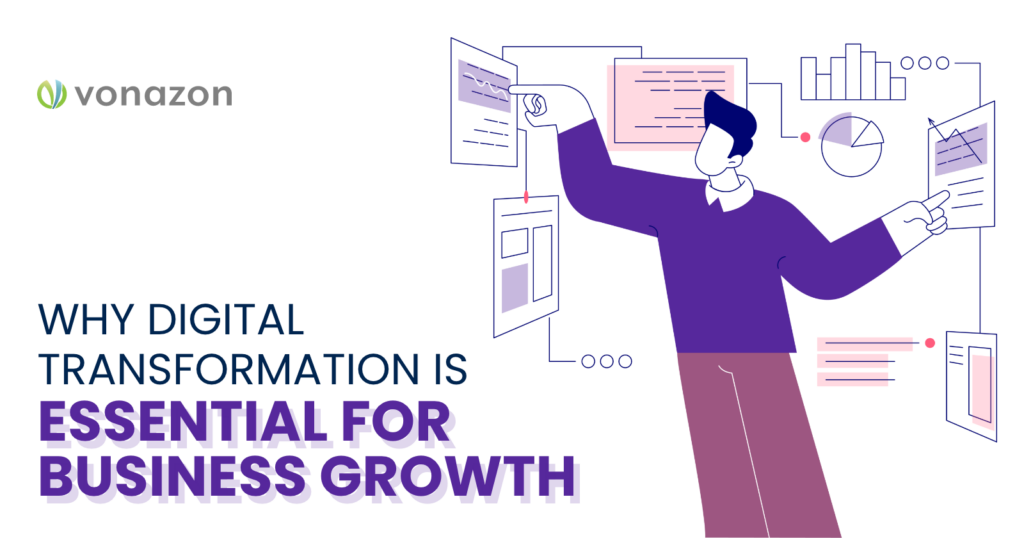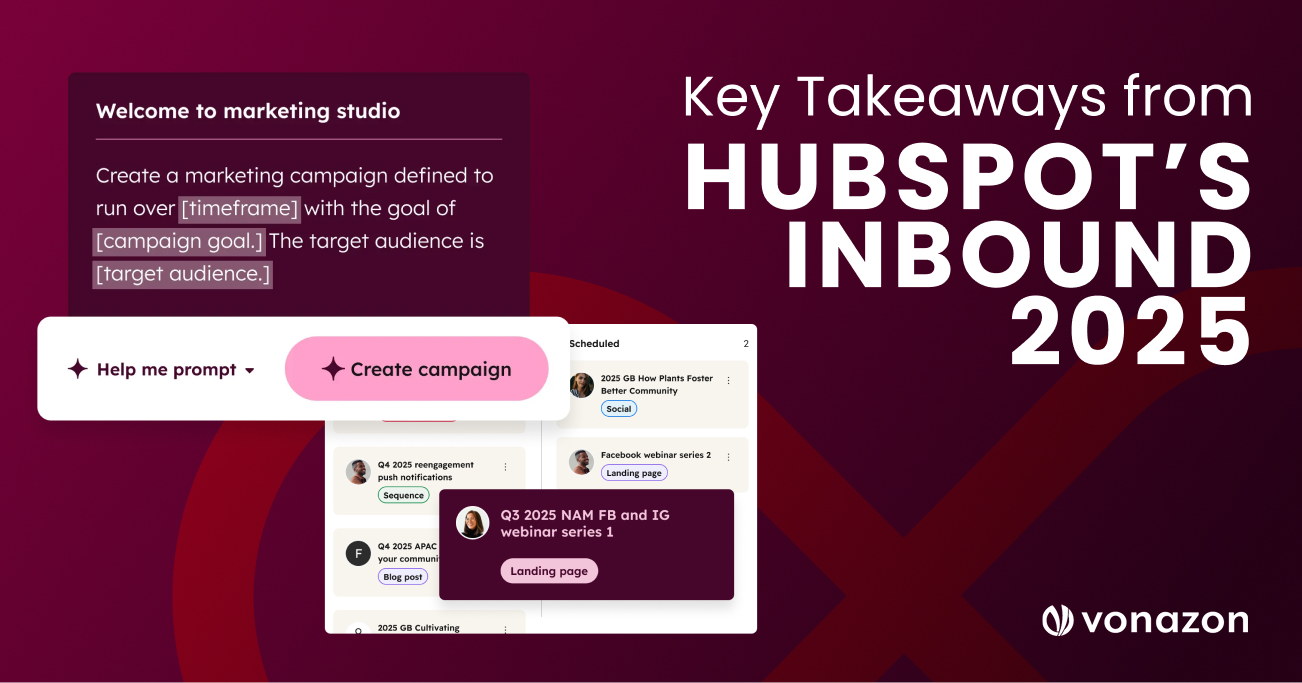Why Digital Transformation is Essential for Business Growth
What Is Digital Transformation and Why It Matters
Not too long ago, the digital world was an accessory to business, not its backbone. A static website was considered a milestone. Social media? A nice-to-have. Today, the stakes are far higher. To compete in a world where consumers expect every interaction to be seamless, personalized, and immediate, businesses must embrace digital transformation—not as a project but as a way of life.
Digital transformation isn’t just about adopting tools or automating processes. It’s about rethinking how you solve problems, deliver value, and anticipate customer needs.
It’ requires reshaping every layer of your organization to thrive in a digital-first economy. This isn’t just survival—it’s evolution.
What Is Digital Transformation?
At its core, digital transformation is the process of embedding technology into every aspect of your business. It’s not simply a shift to new tools or platforms, but instead a fundamental change in how your organization operates.
Digital transformation challenges you to
Reimagine Workflows
Reconfigure Customer Experiences
Rethink What It Means to Deliver Value
Digital transformation is about asking bold questions
??
How can technology streamline what you do best?
??
How can AI or automation eliminate bottlenecks?
??
What would it look like to serve your customers faster, smarter, and more intuitively?
How can technology streamline what you do best?
Digital transformation enhances your mission, taking what you do best and elevating it to new heights. It focuses on improving and optimizing your existing strengths to deliver even greater results.
Why Do Businesses Embrace Digital Transformation?
Driving Business Growth
Digital transformation is essential for forging new paths to business growth. By leveraging digital tools, companies can scale faster, enter new markets, and identify untapped revenue streams.

Take Spotify, for example. Its shift from a simple streaming platform to a data-driven ecosystem (featuring personalized playlists, podcast integration, and dynamic advertising options) has enhanced user engagement and driven exponential revenue growth.

Similarly, HubSpot uses AI-powered analytics to help businesses uncover trends and make data-backed decisions.
This proactive approach enables companies to pivot faster, adapt to changing market demands, and seize growth opportunities. For businesses in any industry, digital transformation provides the agility and innovation necessary to expand their reach and thrive in an evolving landscape.
Enhanced Customer Expectations
Today’s consumers demand convenience, speed, and personalization. Whether they’re shopping for furniture or managing their healthcare, they expect seamless digital interactions that anticipate their needs.

Businesses like IKEA have embraced this reality by integrating augmented reality (AR) into their shopping experience. Through the IKEA Place app, customers can virtually place furniture in their homes, reducing guesswork and increasing satisfaction.
Operational Efficiency
Digital tools replace outdated manual processes, saving time and reducing errors.

WestRock, a leader in packaging solutions, exemplifies this by embedding smart tags and employing AI in their supply chain. These innovations improve visibility and empower teams to focus on higher-value tasks. For businesses across industries, these kinds of tools have become a necessity.
Staying Competitive

MV Agusta, a luxury motorcycle manufacturer, embraced digital transformation to maintain its edge in a fiercely competitive market. By moving to HubSpot, the company unified its marketing, sales, and service operations under one CRM platform. This shift provided a 360-degree view of customer interactions, empowering MV Agusta to craft personalized experiences and expand into new markets.
The transformation delivered measurable results, including a 35% increase in leads and a 34% boost in online sales. MV Agusta’s ability to harness data-driven insights solidified its status as a leader in the premium motorcycle industry, proving that staying competitive requires both strategic vision and the right digital tools.
Crafting a Digital Transformation Strategy: Your Roadmap to Success
Let’s face it—digital transformation can feel overwhelming. The sheer number of tools, platforms, and possibilities can lead to “analysis paralysis.” That’s why a strategy is critical.

Define Your Why
Every transformation starts with a pain point. Maybe your sales team wastes hours piecing together customer data. Maybe your supply chain suffers from inefficiencies, like those WestRock solved with AI. Define the challenges holding you back. Your “why” will guide every decision, from the tools you invest in to the outcomes you measure.

Set Goals That Matter
Translate your challenges into actionable goals. For example, if your healthcare organization wants to provide better patient outcomes, follow the Mayo Clinic’s lead. They use AI and wearables to enable remote health monitoring and personalized care. Define what success looks like and work backward from there.

Involve the Right People
Transformation impacts everyone, so gaining company-wide buy-in is critical. Share your “why” and the benefits of transformation, then invite input to ensure all teams feel included in the journey.
Involving key stakeholders from different departments ensures that diverse perspectives are considered, and it helps identify potential challenges early on. When teams feel included in the process, they’re more likely to embrace the transformation and champion its adoption.

Invest in the Right Tools
Choosing the right technology is a cornerstone of successful digital transformation. The tools you select should address your specific challenges while avoiding unnecessary complexity. Look for platforms that integrate seamlessly with your existing systems, scale with your business, and provide intuitive user experiences. Whether it’s an AR shopping app, a cloud-based analytics platform, or a customer service chatbot, the right tech should amplify your efforts.
Scalability is another crucial factor. Look for solutions that can grow with your business, adapting to future needs without requiring constant overhauls. Additionally, prioritize user-friendly tools that empower your team to adopt and use them effectively, reducing the need for extensive training or troubleshooting.
The Future Is Digital—Are You Ready?
The businesses thriving today aren’t just using technology—they’re leveraging it to fundamentally rethink what’s possible. They’re not asking, “How can we adapt?” but rather, “How can we lead?” Digital transformation is a mindset shift -embracing a future where the only constant is change.
If your business is ready to start—or accelerate—its transformation, take the leap. Build your roadmap. Ask the bold questions. The future is waiting, and it’s digital.
At Vonazon, we specialize in empowering businesses to embrace digital transformation. From streamlining operations to enhancing customer experiences, we’ll help you navigate this journey with tailored strategies and cutting-edge tools.
Reach out to us and let’s transform the way you work, connect, and grow.






